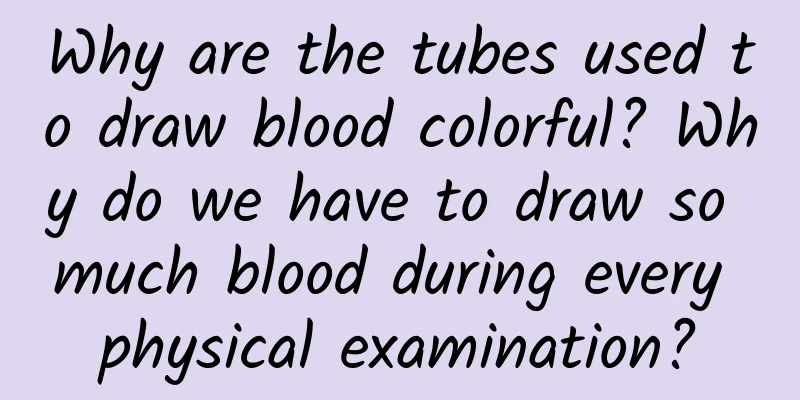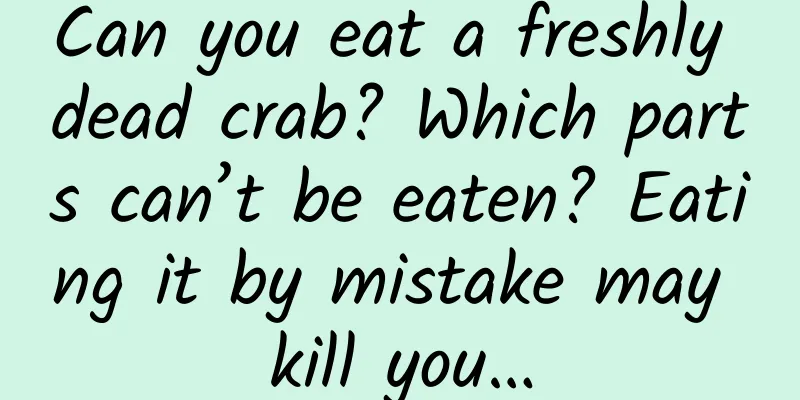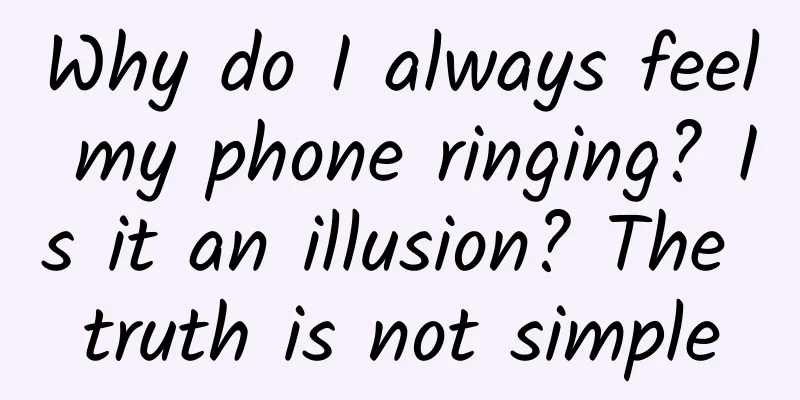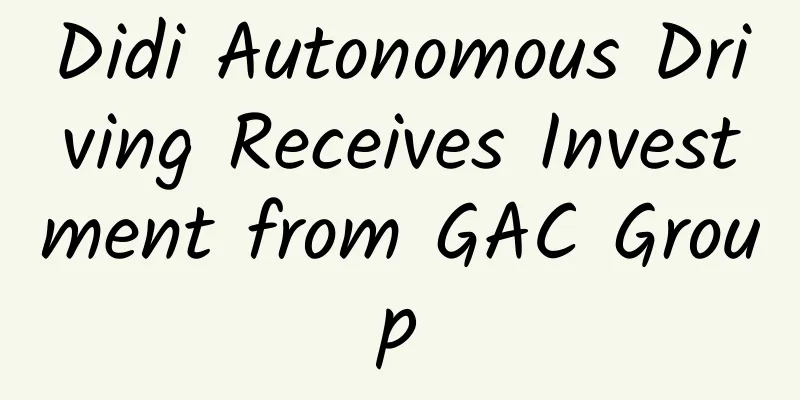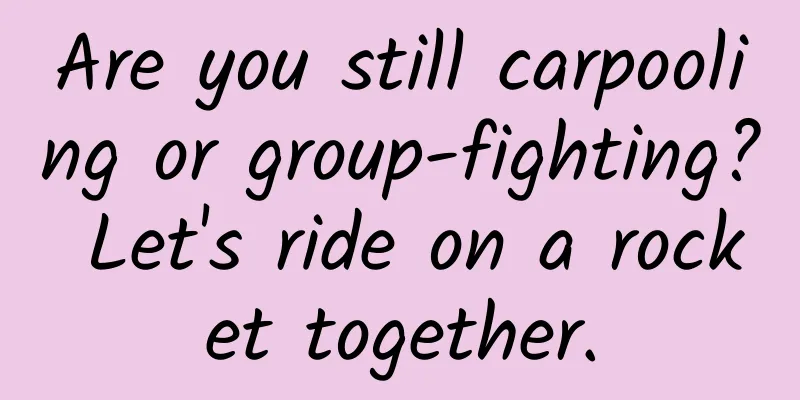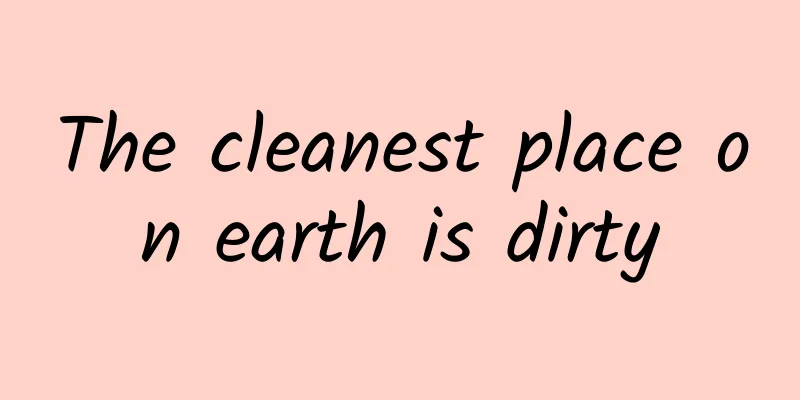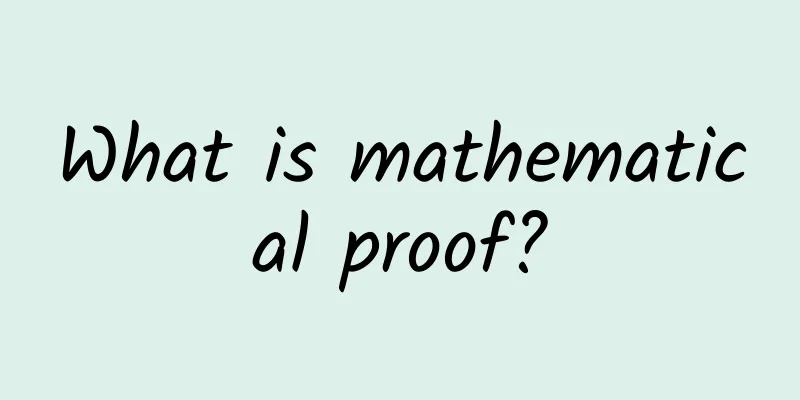What is the meaning of life? Different interpretations at different stages
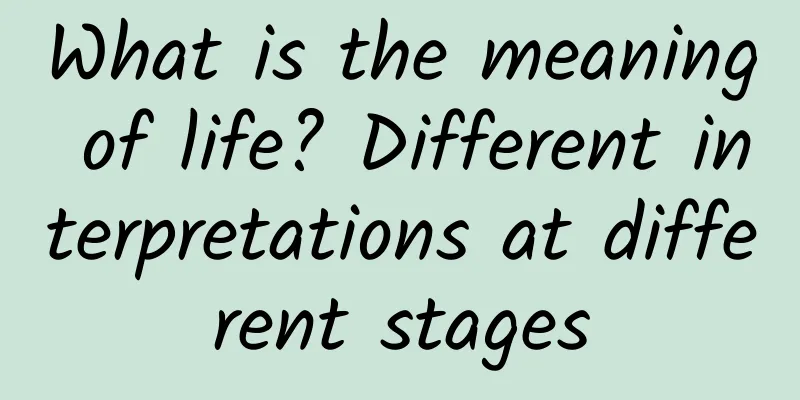
|
Leviathan Press: A few years ago, a friend of mine was particularly afraid of death and came to talk to me. My advice seemed to work for him, but unfortunately, I even forgot what I said afterwards... "I'm afraid of disappearing," my friend's words are meaningful. If you believe that death is truly "dead" - the body rots and the spiritual consciousness completely disappears, then it is normal to have fear and question the meaning of living at the moment. Therefore, on the issue of "the purpose of this journey" in life, people have different conclusions from different thinking paths. Religious reincarnation, belief in the immortality of the soul, etc., will give comfort to many people. However, if you think about it seriously, you will find that at the node of the death issue, "choosing to believe" seems to be a manifestation of free will, but isn't it also a "better solution" that is forced to accept after searching for answers? I think of Larkin's poem:... "Rotten and worms" borrows the words from Leo Tolstoy's "A Confession": Everyone will become rotten and eaten by worms after death. We trudged through this life, and life activities will inevitably stop one day, and all memories will eventually disappear. So, what is the meaning of our coming to this world? Why do we do things? Why live? At 32, these questions pushed me into an existential crisis—as death became inevitable, I began to question the value of life. Was living a fulfilling life simply about checking off a to-do list? Was there a deeper purpose to my limited time on Earth? If so, I had to confront the narrative of the future that society had instilled in me since childhood. My teachers and family encouraged me to achieve career success, and my culture added that a fulfilling life also included great love, strong friendships, and social connections. This crisis was not a belated "quarter-life crisis." I wasn't worried about career choices or friendships. What really worried me was death itself. Compared to death, careers or relationships were nothing. To understand whether life was worth living, I now needed to deal with my mortality. As a philosophy professor, I instinctively tried to dig into the meaning of life. Three years ago, I received my Ph.D. in philosophy. In my last year at school, I was a graduate teaching assistant and taught a course on the meaning of life. Although my academic research is in feminism and racial philosophy, I know there are tools that can answer my confusion, so I began to seek answers from literature, psychology, and philosophy to clarify my doubts about the meaning of life. From August 2018 to June 2019, I got up at 6 o'clock almost every day and wandered through countless texts on the meaning of life. In my quest to understand why life is worth living, I found many clues to the answer: Friedrich Nietzsche; contemporary philosophers Susan Wolf and Lars Svendsen; studies of Western literature and nihilism by Hubert Dreyfus and Sean Kelly; Victor Frankl’s book Man’s Search for Meaning; and psychiatrist Irvin Yalom’s epic book Existential Psychotherapy (yes, I read all 524 pages). All of these readings provided me with clues to resolving my existential crisis, but three texts stood out in particular. They each offer a path to understanding the meaning of life, and I recommend them to anyone who wants to find that answer. Leo Tolstoy: The Religious Path My first stop was Leo Tolstoy. At 50, he was the most famous man in the world, famous all over the world, and well off. But his achievements were beginning to feel empty. Why care about them if they would eventually be forgotten? What was the point of holding on to life and wealth when they would eventually return to dust? These questions, which began as occasional outbursts, became years of torment. In the opening pages of The Confessions, the story of this crisis, I knew this man understood my existential anxiety. Leo Tolstoy (1828-1910). © wiki Tolstoy looked into many fields—from the empirical sciences to metaphysics—to answer the question of what the meaning of life is. But he found nothing. Every field was unanswerable. Biology, for example, says only that humans are “a fleeting, improvised mass of particles.” This is a bit discouraging for those who want to be remembered for a lifetime or believe that the universe is already written. Metaphysics, on the other hand, only offers meaningless statements to the effect that “the world is an eternal, inconceivable thing” and that “human life is an equally inconceivable part of the inconceivable ‘everything.’” Those are useless if you want to understand the world and your place in it. Tolstoy also turned to his immediate circle of friends and acquaintances for a way out. But it was no use. Those in his class seemed to be either superficial or too empty-headed to confess the meaninglessness of their lives. Tolstoy's repeated failures to achieve his goal to survive tore at his will to live, bringing him to the brink of suicide. However, it was difficult for him to end his own life. He could not find a reason to live in science or among his relatives and friends, but at the same time he felt that he should not commit suicide, so he needed to look further: "I felt instinctively that if I wanted to live and understand the meaning of life, I could not look for it in people who were dead or who wanted to commit suicide, but in the millions of people who had lived and were living, who created life and who bore the burden of their own lives, as well as the burden of ours." Outside his circle of life were the Russian peasants. They supported their spirits with their Christian faith and never questioned whether life was worth living. Tolstoy had an epiphany and turned to God for help. Although he romanticized peasant life, he identified what he believed to be a philosophical truth: the only way to find the meaning of finite life is to believe that after death you can become one with something infinite. In order to achieve this union, believers must live according to God's will. In this way, faith not only taught Tolstoy why he lived, but also told him how to live. I admired Tolstoy's intellectual candor in describing crises and religious solutions. But because I was raised secularly, I had trouble accepting this conclusion. Although some of my family members were Christian, I didn't feel like I belonged. Years of hanging out with atheist friends, non-believing philosophy professors, and Nietzsche kept me away from religion. I was once curious about the Buddhist teachings on happiness, but other parts of religion, such as the existence of reincarnation, held me back. However, Confessions inspired me to find my own solution. Albert Camus: The Road to Atheism During 10 months of waking up early and reading, I came across a book that brought me hope - Albert Camus' most famous work, The Myth of Sisyphus. While The Confessions describes an individual's struggle to find the meaning of life, The Myth of Sisyphus provides a possible answer from a philosophical perspective. Albert Camus (1913-1960). © Port Magazine Camus begins by asking us to acknowledge the irrationality of the world: there are limits to what we can understand, including why we exist. This is what he calls the "absurd" - the "conflict" between the irrationality of the world and the "desire to get to the bottom of things, which resonates in the deepest part of the human heart." According to his philosophy of the absurd, we should not pray for a grand meaning to our existence, and we should not believe that some eternal thing will redeem our lives. Stop hoping that life has meaning! Reject the consolation offered by religion! Camus's argument for action sounds very attractive, but I don't see a clearly defined argument. Even if I abandon Tolstoy's view, I can still understand his defense of religious belief: our limited life is worth living because it can be redeemed in something infinite - God. But Camus’s argument for finding life worth living seems like a collection of unconvincing reminders. For example, he offers the figure of the “conqueror” as a model for living in an absurd world; someone who lives in the present, for the sake of victory, and for no other purpose. But what is satisfying about conquests if one’s conquests have no ultimate rationale, or if they don’t care how long they live? As for my question, I didn't see a satisfactory answer in the text. Or take the fable of "The Myth of Sisyphus" at the end of the book (the book is named after this fable). Sisyphus was sentenced by the gods to push a rock to the top of the mountain, watch it roll down again and again, and then push it back to the top again and again - there is no day of liberation. In Camus's view, Sisyphus's fate is exactly the same as ours. His work is not rewarded, just as our earthly ups and downs are not compensated at all. Camus is, however, somewhat optimistic about the "absurd hero": "Thus, this world without a master is neither barren nor insignificant to him." Why? Because Sisyphus can control his attitude toward his fate. The right choice, the path to happiness, is to accept it with joy. Hence the classic epilogue: "Sisyphus should be imagined to be happy." Camus’s solution, the opposite of Tolstoy’s, inspired me to sketch a secular path to the problem. But, as I joke with friends and students, I can’t imagine Sisyphus being happy. The image of him doing useless work chills me to the bone, and it certainly doesn’t help me find the meaning of life. Moreover, Camus’s text raises more questions than it answers. Why does mocking the lack of meaning in life motivate us? Why doesn’t the “clarity” of our destiny lead us to the opposite of happiness? As the scholar Ronald Aronson puts it, Camus’s claim that the existence of an absurd hero is better than the existence of God “reveals a certain sleight of hand, as the philosopher gives way to the artist.” Although Camus's description of the absurd life does not work for me, I think there is something to be said for his work - that we should not pin the meaning of life on the possibility of God's blessing. Since then, every time I read philosopher Simone de Beauvoir's words about the lack of religious faith, I am convinced that life is more important to me than anything else. As long as I am alive, so be it! William James: The Spiritual Path A week after reading Camus, I was out of ideas, so I searched the Internet for “Is life worth living?” I had spent the previous few months bleary-eyed, hunched over piles of books, but they only offered partial answers, and that was all I could gather. It was there that I came across William James’s speech to the Harvard YMCA, “Is Life Worth Living?” James began by answering the question with a humorous statement: It depends on the liver. But there was no joking in his speech. He addressed the thinkers in his audience who worried that life was meaningless: “Many of you are students of philosophy, and you have sensed within yourselves that skepticism and unreality that often arises when you dig too deep into the abstract roots of things… Too much questioning and too little sense of responsibility to act can lead one to the edge of a hill where pessimism and nightmares and a self-destructive attitude toward life lie below,” he seemed to be talking to me. William James (1842-1910). © Great Thoughts Treasury To answer the question of the meaning of life, he turned to religion, but not in a traditional way. Given the contradictions we experience every day, such as joy and sorrow, life and death, beauty and ugliness, the idea that the world is completely controlled by gods seems wrong. Therefore, it makes no sense to believe in a God who appears as a great architect. In addition, James ignored the idea that there must be a "great watchmaker" to explain the workings of nature, based on scientific theories such as evolution. To him, religion simply means believing in something that cannot be felt—an invisible or supernatural order that adds meaning to our efforts. He has an analogy to illustrate this. Imagine a dog being used in medical experiments to develop cures for human or animal diseases. While the dog may not be able to understand its own suffering in a larger context, that suffering does have a greater meaning. Likewise, humans may live in an invisible realm, and our suffering has a larger context. The crux of James's argument is that there is nothing wrong with choosing to believe in a supernatural order, even if no one is sure that such an order exists. Those who are determined to believe in "hard facts" deny that there is an unperceivable world, but at the same time, they have to admit that there is no evidence that such a world does not exist. So which is the best choice: religion or skepticism? James believes that the benefits of religion are practical. Believing that there is a grand mechanism for the operation of things can encourage people to take action. Your contribution may give meaning to your limited existence. Finally, the most moving part of James's speech was his concluding metaphor. Imagine you are climbing a mountain, and there is a dangerous pass in front of you. You have no choice but to step over it to continue your journey. James said that if you muster up the courage to step over it, you are more likely to land safely than if you hesitate whether you can land safely. So, in the same way, you should strive to make your life more worth living, rather than worrying about life and death, good and evil, and all the contradictory states of life. Jump into activities that give you a reason to live! Isn't this more motivating than Sisyphus resisting and pushing a boulder up the mountain again and again, only to watch it fall back down again and again? The core message of James' speech is that we shouldn't wait for proof that life is worth living. Instead, you can fight to make life worth living: "Don't be afraid to live. Believe that life is worth living, and your faith will help you achieve it." Just as religion once made me uncomfortable, so too did some of James's words. But while he mentioned religion, he made me feel more comfortable by saying his ideas were "spiritual" rather than "religious." This was not like Tolstoy's argument, because a meaningful life does not mean following divine precepts to ensure you go to heaven after you die. And Camus's atheism did not work for me. Of all the arguments, James’s defense of faith is the most convincing. The invisible order that gives meaning to everyday endeavors is just a “possibility.” But don’t I face all kinds of “possibilities” every day? I prepare for class despite the possibility that I might be hit by a car on the way to class. If I worried about every possible accident, I wouldn’t get out of bed in the morning. “Believe that life is worth living” is more than a philosophical version of Nike’s slogan “Just do it.” James got me moving because of the slight hope that my contribution would not be offset by death. After reading James’s speech, my spiritual journey was complete. Although my life is finite, my life is worth living. This article cured my existential anxiety, but I doubt I would have been cured by James’ text if I had not first pondered the coping methods of Tolstoy and Camus. Although “Is Life Worth Living?” may not be as famous as “Confessions” and “The Myth of Sisyphus”, it is extremely valuable. James courageously explores the question of what it means to live in the face of death. Perhaps it is because the text begins as a speech that his style is so personal and moving. But what makes the text so powerful is that his perspective is somewhere between traditional religion and atheism, which is exactly what I was looking at. James has become part of my life. I share his speeches with friends, and they have become the source material for a course I now teach at university on the philosophy of death. The phrase "Believe that life is worth living, and your belief will help make it a reality" has become deeply rooted in my soul. Whenever I question the meaning of my finite life, I repeat this phrase like a mantra. Until I was 32, the daily advice I received about work or relationships never helped me discover the meaning of life. What I needed was a more comprehensive look at what it meant. I needed to believe that I was not a cog in the machine of the world - fleeting and insignificant. Thank you James for reminding me that I have a contribution to make to humanity, whether in my personal life or just sharing this journey of finding the answer to "Why live?" By Celine Leboeuf Translated by Yord Proofreading/boomchacha Original article/celine-leboeuf.medium.com/why-live-beb2b716bfbf This article is based on the Creative Commons License (BY-NC) and is published by Yord on Leviathan The article only reflects the author's views and does not necessarily represent the position of Leviathan |
<<: Beware! The sandals you wear may be "toxic"!
Recommend
APP promotion tips, free resources from Android app store!
As an operator , you need to dig deep into the ch...
High-tech or a waste of money? A review of 10 water flossers will tell you the answer!
Ever since I reviewed electric toothbrushes last ...
NIO APP traffic diversion strategy!
Today we disassembled the traffic strategy and re...
Analysis of classic popular articles on Xiaohongshu brand!
In the brand promotion of Xiaohongshu, a hot arti...
When aircraft carrier-grade materials are used in cars, why has the 2018 Borgward BX7 become the quality benchmark in the SUV market?
For Borgward, a car brand with German roots that ...
What exactly is the "poison of the century" that makes people "terrified"?
Produced by: Science Popularization China Author:...
Are movies adapted from novels necessarily inferior to the originals? Here are some counter-examples!
In 1999, young Neo in "The Matrix" face...
Ling'er Investment Research Diary "Golden Buying and Selling Points" Gold Buying Points & Gold Selling Points Private Edition
Ling'er Investment Research Diary "Golde...
Survival within the system: "The director of the red dust department talks about the way to promotion"
Teach you how to survive in the system, plan your...
Why does food taste different when I eat after brushing my teeth?
The first thing workers should do when they get u...
How to obtain OAuth2 authentication interface in WeChat Enterprise Account Development
URL links in enterprise applications (including l...
Mobile game startup review: Why did the company fail 3 and a half years after its establishment?
As competition in the mobile game industry become...
Never put soda in the freezer, beware of explosion!
Audit expert: Luo Huachun Editor-in-Chief of Citi...
From conception to breastfeeding, science is quietly healing the pain that mothers endure for us
Mothers give us life. It is not until we grow up,...
Beijing Health Code is online! How to use? A must have for these occasions! Attached operation steps
Currently, except for Hubei Province, most compan...

